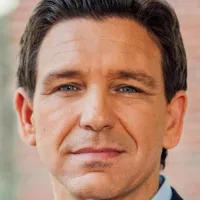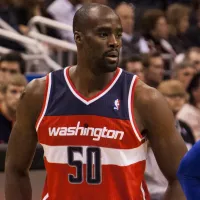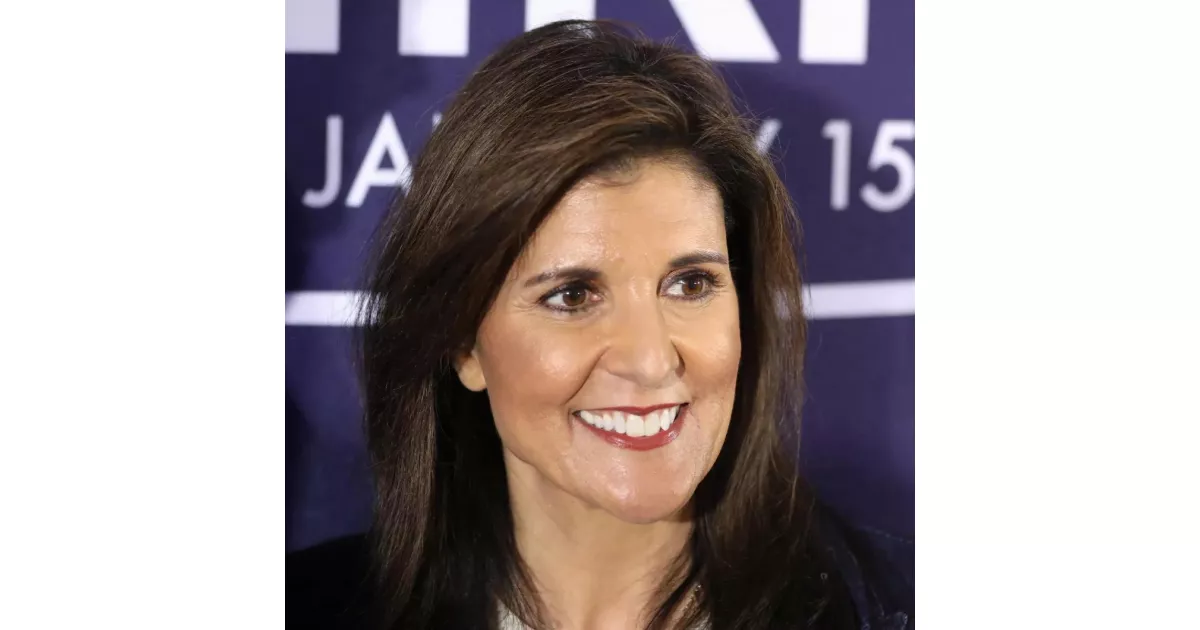Nikki Haley is an American politician and diplomat. She served as the Governor of South Carolina (2011-2017) and U.S. Ambassador to the United Nations (2017-2018). A Republican, she is the first Indian American to hold a cabinet-level position. In 2024, she ran for the Republican presidential nomination, finishing second to Donald Trump.
September 7, 1996: Marriage to Michael Haley
On September 7, 1996, Nikki Haley married Michael Haley, celebrating with both Sikh and Methodist ceremonies.
1996: Conversion to Christianity
In 1996, Nikki Haley converted to Christianity and was baptized before her wedding at St. Andrew's by the Sea United Methodist Church. However, she continues to identify with aspects of the Sikh faith and remains active in the Sikh community.
2010: Induction into the Order of the Palmetto
In 2010, Nikki Haley was inducted into the Order of the Palmetto.
2012: Appointment of Tim Scott to the U.S. Senate
In 2012, Nikki Haley, then governor of South Carolina, appointed Tim Scott to the U.S. Senate.
2013: Honorary Black Belt in Taekwondo
In 2013, Nikki Haley received an honorary 4th-dan black belt in Taekwondo.
2013: Husband's Tour of Duty in Afghanistan
In 2013, Nikki Haley's husband, an officer in the South Carolina Army National Guard, had a tour of duty in Afghanistan.
2014: Visit to Harmandir Sahib
In 2014, Nikki Haley and her husband visited and prayed at the Harmandir Sahib during a visit to India.
2015: Honorary Doctorate from the University of South Carolina
In 2015, Nikki Haley received an honorary Doctorate of Public Service from the University of South Carolina.
2017: Meeting with Caitlyn Jenner at the UN
In 2017, Nikki Haley, as US ambassador, met with Caitlyn Jenner at the UN to discuss "global LGBT issues".
2018: Honorary Doctorate from Clemson University
In 2018, Nikki Haley received an honorary Doctorate of Humanities from Clemson University.
2019: Estimated Net Worth of $1 Million
In 2019, Nikki Haley had an estimated net worth of $1 million.
March 2020: Criticism of Initial Pandemic Relief Act
In March 2020, Nikki Haley criticized the initial pandemic relief act enacted by Republicans and signed by Trump.
2021: Criticism of Pandemic Relief Act Enacted by Democrats
In 2021, Nikki Haley criticized the pandemic relief act enacted by Democrats.
2021: Defense of Meeting with Caitlyn Jenner
In 2021, Nikki Haley responded to a social media mockery of her meeting with Caitlyn Jenner, defending her for having "conservative views" and rebuking Dean Cain for laughing at the post.
2022: Net Worth Growth to $8 Million
By 2022, Nikki Haley's net worth grew to an estimated $8 million, boosted by book sales and joining the boards of Boeing and United Homes Group.
February 2023: Support for Term Limits and Mental Competence Tests
In February 2023, Nikki Haley announced support for congressional term limits and "mandatory mental competence tests for politicians over 75 years old."
February 2023: Criticism of Florida Parental Rights in Education Act
In February 2023, Nikki Haley criticized the Florida Parental Rights in Education Act, suggesting it didn't go far enough and should extend through seventh grade.
February 2023: Support for National Abortion Ban Proposal
In February 2023, Nikki Haley supported a proposal by Senator Lindsey Graham to establish a national 15-week abortion ban, with exceptions.
February 2023: Vow to Cut Foreign Aid
In a February 2023 op-ed, Nikki Haley vowed to "cut every cent in foreign aid for countries" deemed "enemies" of the United States.
April 2023: Florida Extends the Ban Through 12th Grade
In April 2023, Florida extended the ban through 12th grade.
May 2023: Pledge to Sign a Federal Abortion Ban
In May 2023, Nikki Haley pledged to sign a federal abortion ban, without specifying the number of weeks.
June 2023: Attacks on Trump and DeSantis over Ukraine
In June 2023, Nikki Haley attacked Trump and DeSantis for their positions on the Russian invasion of Ukraine, while also criticizing Biden's actions.
August 2023: Refusal to Directly State Support for Federal Abortion Ban
During a debate in August 2023, Nikki Haley refused to directly state whether she supported a federal abortion ban.
August 2023: Support for Trump as Republican Nominee
During a debate in August 2023, Nikki Haley said she would support Trump as the Republican nominee even if he was convicted of crimes.
December 27, 2023: Comments on the American Civil War
On December 27, 2023, Nikki Haley stated that the cause of the American Civil War was "basically how government was going to run," omitting slavery, which led to criticism.
2023: Criticism from Trump and DeSantis
In 2023, Nikki Haley faced criticism from Trump, who called her "birdbrain," and DeSantis's campaign, which labeled her an establishment candidate and a liberal darling due to a donation from Reid Hoffman.
January 15, 2024: Third Place Finish in Iowa Caucuses
On January 15, 2024, Nikki Haley finished in third place in the Iowa caucuses with 19% of the vote, behind Trump and DeSantis. She prevailed over Trump by one vote in Johnson County.
January 16, 2024: Statement on Racism in the US
On January 16, 2024, Nikki Haley stated, "The US has never been a racist country."
February 24, 2024: Primary Loss in South Carolina
On February 24, 2024, Nikki Haley lost the primary in her home state of South Carolina with 39.5% of the vote compared to 59.8%.
March 2, 2024: First Primary Win in D.C.
On March 2, 2024, Nikki Haley won her first primary in the District of Columbia Republican primary with 62% of the vote.
April 15, 2024: Joins Hudson Institute
On April 15, 2024, it was announced that Nikki Haley would join the Hudson Institute, a conservative think-tank, as the next Walter P. Stern Chair.
May 2024: Visit to Israel During Gaza War
In May 2024, Nikki Haley visited Israel during the Gaza war and wrote "Finish Them!" on artillery shells, which sparked controversy due to accusations of genocide against Israel.
August 2024: Visit to Taiwan
In August 2024, Nikki Haley visited Taiwan and advocated for its full membership in the United Nations and World Health Organization, drawing comparisons between the treatment of Taiwan and Russian aggression in Ukraine.
September 2024: Joins Edelman as Vice Chair
In September 2024, Nikki Haley joined the global communications firm Edelman as vice chair of its international public affairs team.
2024: Trump Not Considering Haley as Running Mate
In 2024, despite Nikki Haley suspending her campaign and still receiving votes in Republican primaries, Trump confirmed on May 11 that she was not under consideration to be his running mate. Ten days later, she stated she would vote for Trump in the general election.
2024: Write-In Votes in Vermont Election
In the 2024 election, Nikki Haley received 458 write-in votes in the state of Vermont.
Mentioned in this timeline

Donald John Trump is an American politician media personality and...

Bernie Sanders is a prominent American politician currently serving as...

Ron DeSantis is an American politician who has served as...
Ukraine is a country in Eastern Europe the second-largest on...

Barack Obama the th U S President - was the...

Marco Rubio is an American politician attorney and diplomat He...
Trending
1 hour ago ANTM's controversies are revealed in a new Netflix documentary, with Tyra Banks facing criticism.
1 hour ago EU monitors Albania's legal changes: Concerns raised over Rama's SPAK amendment.
2 hours ago Arkansas State Police sees 29% drop in high-speed pursuits due to law changes.

3 hours ago Mark McMorris Seeks Fourth Olympic Medal in 2026 Snowboard Slopestyle Final.

3 hours ago Emeka Okafor's UConn Jersey to be Retired on February 18, Joining Husky Legends

3 hours ago Gus Schumacher and Team USA win silver in Olympic cross-country team sprint.
Popular

Jesse Jackson is an American civil rights activist politician and...
Randall Adam Fine is an American politician a Republican who...

Pam Bondi is an American attorney lobbyist and politician currently...

Barack Obama the th U S President - was the...

Martin Luther King Jr was a pivotal leader in the...

Ken Paxton is an American politician and lawyer serving as...
